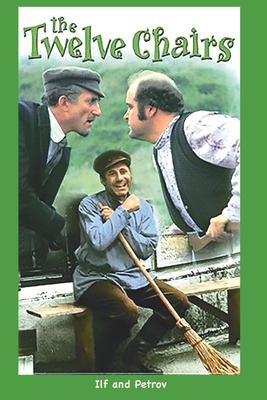The Twelve Chairs is a classic satirical picaresque novel by the Soviet authors Ilf and Petrov, published in 1928. Its plot follows characters attempting to obtain jewelry hidden in a chair. A sequel was published in 1931. The novel has been adapted to other media, primarily film.
Ilf and Petrov gained a high profile for their two satirical novels: The Twelve Chairs (1928) and its sequel, The Little Golden Calf (1931). The two texts are connected by their main character, Ostap Bender, a con man in pursuit of elusive riches. Both books follow the exploits of Bender and his associates looking for treasure amidst contemporary Soviet reality. They were written and are set in the relatively liberal era in Soviet history, the New Economic Policy of the 1920s. The main characters generally avoid contact with lax law enforcement. Their position outside the organized, goal-driven, productive Soviet society is emphasized. It also gives the authors a convenient platform from which to look at this society and to make fun of its less attractive and less socialist aspects. These are among the most widely read and quoted books in Russian culture. The Twelve Chairs was adapted for ca. twenty movies; in the Soviet Union (by Leonid Gaidai and by Mark Zakharov), in the US (in particular by Mel Brooks), and in other countries.
The two writers also traveled across the Great Depression-era United States. Ilf took many pictures throughout the journey, and the authors produced a photo essay entitled "American Photographs," published in Ogoniok magazine.
